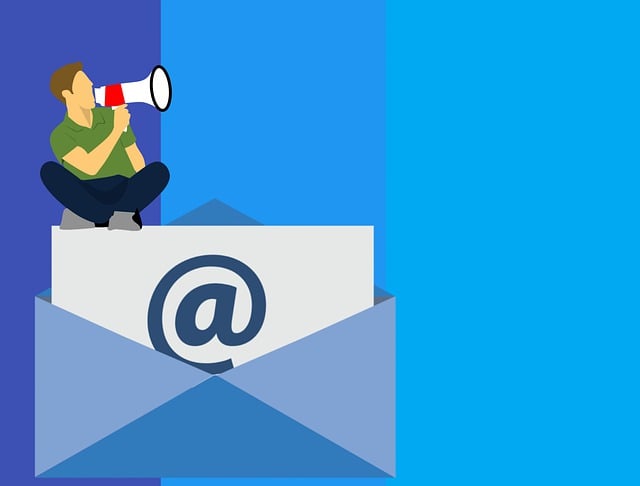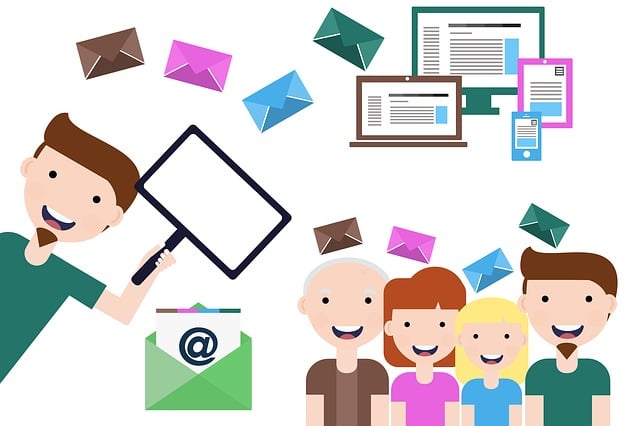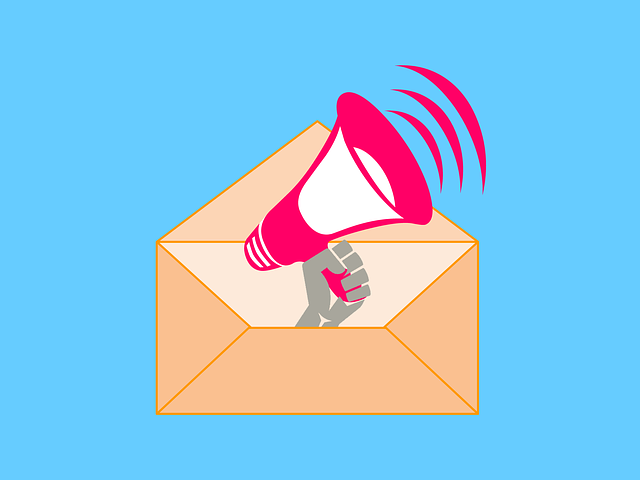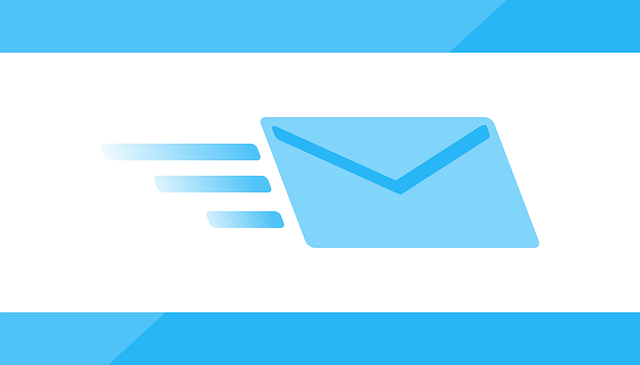Are you tired of constantly dialing numbers and facing rejection after rejection? Or perhaps you’re tired of your emails going unnoticed in a sea of overflowing inboxes.
In the world of B2B sales, finding the right approach to connect with potential customers can be a daunting task. It’s like trying to navigate through a dense forest, where every step you take could either lead you to success or leave you lost and frustrated.
But fear not, because in this article, we will explore two powerful strategies that can help you cut through the noise and reach your target audience effectively. B2B email marketing and cold calling are two popular methods, each with their own strengths and weaknesses.
Join us as we delve into the pros and cons of both approaches, examine their effectiveness in generating leads, and discover the best way to build relationships and trust with your prospects.
So, grab your compass and let’s find the path that leads to success!
Key Takeaways
- B2B email marketing allows for personalized communication and targeting specific industries or job titles.
- Personalized emails are more likely to grab attention, elicit responses, and drive desired actions.
- Cold calling offers direct and immediate connection, building rapport and addressing objections in real-time.
- Integrating B2B email marketing and cold calling creates a comprehensive and effective outreach strategy.
Pros and Cons of B2B Email Marketing
B2B email marketing has its merits and demerits, providing a dualistic approach to reaching potential clients. When it comes to effectiveness, email marketing has proven to be a valuable tool. With well-crafted emails, you can showcase your products or services, target specific industries or job titles, and easily track open and click-through rates. It allows for personalized communication and can be automated for efficiency. However, it’s important to note that email marketing is not without its challenges. Spam filters can hinder delivery, and open rates may vary.
On the other hand, cold calling offers a more direct and immediate connection with potential clients. It allows for real-time interaction, building rapport, and addressing objections on the spot. However, it can be time-consuming and often faces rejection.
Transitioning to the next section, let’s explore the pros and cons of cold calling.
Pros and Cons of Cold Calling
When it comes to cold calling, there are several pros and cons to consider.
One advantage is the direct and immediate communication it offers, allowing you to connect with potential customers in real-time.
Additionally, cold calling provides the opportunity to build rapport and address objections directly, which can help in convincing prospects to consider your products or services.
However, it’s important to note that cold calling can be time-consuming and potentially intrusive, as it requires contacting individuals who may not be expecting your call.
Direct and Immediate Communication
If you want to make a direct and immediate impact on your prospects, nothing beats picking up the phone and cold calling. For example, imagine you are a sales representative for a software company and you cold call a potential client. Within minutes, you can engage in a conversation, address their concerns, and showcase the benefits of your product, leading to a potential sale right then and there.
| Pros of Cold Calling | Cons of Cold Calling |
|---|---|
| Real-time feedback | Interruption of busy prospects |
| Personalized interactions | Potential for rejection |
| Ability to build rapport and address objections | Time-consuming |
Cold calling allows you to receive real-time feedback from your prospects. You can gauge their interest, objections, and concerns immediately, allowing you to adapt your sales pitch on the spot. Additionally, you have the opportunity to provide personalized interactions, tailoring your message to the specific needs and pain points of each prospect. However, it’s important to note that cold calling can be disruptive to busy prospects and may result in rejection. It also requires a significant amount of time and effort. Nonetheless, the ability to build rapport and address objections in real-time makes cold calling a powerful tool in sales. In the next section, we will explore its effectiveness in building relationships with prospects and addressing their objections.
Ability to Build Rapport and Address Objections
Build rapport and address objections effectively by engaging in direct and personalized conversations with your prospects through cold calling. This approach allows you to establish a connection with your potential clients, making them more receptive to your message.
Here are three key ways in which cold calling can help you build rapport and handle objections:
-
Personalized interaction: By speaking directly to your prospects, you can tailor your pitch to their specific needs and pain points. This personalized approach shows that you understand their challenges and are genuinely interested in helping them find a solution.
-
Real-time feedback: Cold calling provides instant feedback, allowing you to address objections on the spot. By actively listening and responding to your prospects’ concerns, you can overcome objections and build trust in real-time.
-
Building relationships: Cold calling allows you to establish a personal connection with your prospects, fostering trust and credibility. By engaging in meaningful conversations, you can build long-lasting relationships that go beyond the initial sales pitch.
Transitioning into the next section, cold calling can be time-consuming and potentially intrusive, but it offers unique benefits that can outweigh these challenges.
Time-Consuming and Potentially Intrusive
Cold calling can be like a double-edged sword, as it requires a significant investment of time and can feel intrusive, like barging into someone’s personal space uninvited.
It involves manually dialing numbers, waiting for someone to pick up, and then trying to engage them in a conversation. This process can be time-consuming, especially when dealing with gatekeepers who screen calls.
On the other hand, B2B email marketing can be a time-saving approach. With email automation tools, you can reach a large number of prospects simultaneously, without the need for manual dialing or waiting for responses.
Additionally, email allows recipients to respond at their convenience, eliminating the potential intrusion felt with cold calling. By leveraging the benefits of email marketing, you can save time and reach your prospects in a non-intrusive manner.
This approach sets the stage for discussing the effectiveness of each method in generating leads.
Effectiveness in Generating Leads
Although both b2b email marketing and cold calling have their merits, email marketing has proven to be more effective in generating leads due to its ability to reach a larger audience and provide valuable content.
With email marketing, you can target a wider range of potential customers, increasing the chances of finding high-quality leads. Additionally, email campaigns allow you to provide in-depth information about your products or services, showcasing their value and benefits. This, in turn, helps to build trust and credibility with your audience, leading to higher conversion rates.
By nurturing leads through personalized and targeted email campaigns, you can establish stronger relationships and foster trust with potential customers. This sets the stage for the subsequent section about building relationships and trust, where you can delve deeper into the importance of establishing connections and credibility.
Building Relationships and Trust
When it comes to connecting with potential customers, establishing relationships and gaining their trust is crucial for business success. Did you know that 82% of consumers are more likely to trust a company whose CEO engages on social media? Building credibility and nurturing relationships are key components in achieving this trust.
Here are five reasons why focusing on building relationships is more effective than cold calling:
- Building relationships allows for customized interactions and personalized communication.
- It helps in understanding the needs and pain points of potential customers.
- Relationships foster loyalty and long-term partnerships.
- Trust is built through consistent and valuable engagement.
- It creates a positive brand image and enhances credibility.
By focusing on building relationships and trust, you can lay a solid foundation for successful B2B email marketing campaigns. Transitioning into the next section about customization and personalization, it’s important to understand how these factors contribute to effective communication strategies.
Customization and Personalization
When it comes to building relationships and trust in b2b email marketing or cold calling, customization and personalization play a crucial role.
Tailoring your email campaigns to individual needs shows that you understand and value your prospects, while adapting your cold calls to specific prospects demonstrates your willingness to go the extra mile.
Personalization has a significant impact on engagement and conversion rates, as it makes your communication more relevant and meaningful to your audience.
Tailoring Email Campaigns to Individual Needs
Tailoring email campaigns to individual needs can greatly enhance the effectiveness and engagement of B2B email marketing efforts. By using personalized messaging and targeted audience outreach, you can create email campaigns that resonate with your prospects and make them feel like you understand their unique challenges and needs.
This level of customization and personalization shows that you value their business and are willing to go the extra mile to meet their specific requirements. When recipients receive an email that speaks directly to them, they are more likely to pay attention, respond, and take the desired action. This approach allows you to build stronger relationships and increase the chances of converting leads into customers.
However, it’s important to remember that email marketing is just one piece of the puzzle. In the subsequent section, we will explore how to adapt cold calls to specific prospects, complementing your tailored email campaigns and maximizing your chances of success.
Adapting Cold Calls to Specific Prospects
Adapting cold calls to specific prospects allows you to connect on a deeper level and increase the likelihood of forming meaningful business relationships. By adapting your messaging to align with the needs and interests of each prospect, you can demonstrate that you understand their unique challenges and offer tailored solutions.
This personalized approach shows that you value their individuality and are invested in their success. When you take the time to research and understand your prospects before making a cold call, you can speak directly to their pain points and position your product or service as the perfect solution. This level of personalization not only captures their attention but also builds trust and credibility. It sets you apart from competitors who rely on generic pitches and increases the chances of converting prospects into loyal customers.
Transitioning into the subsequent section about the impact of personalization on engagement and conversion, it is clear that customized interactions have a significant effect on the success of your business.
Impact of Personalization on Engagement and Conversion
To truly engage and convert prospects, you need to personalize your approach, demonstrating an understanding of their unique challenges and offering tailored solutions that align with their needs and interests.
Personalization has a significant impact on open rates and overall engagement. When recipients see their name or relevant information in the subject line, they’re more likely to open the email and continue reading. In fact, studies have shown that personalized email subject lines can increase open rates by up to 50%.
By customizing your message to address specific pain points and providing targeted solutions, you show that you’ve taken the time to understand their business and are genuinely interested in helping them. This level of personalization not only captures their attention but also increases the effectiveness of your email marketing efforts.
Now, let’s explore how integrating both strategies can optimize your results.
Integrating Both Strategies
Combining the power of B2B email marketing and cold calling can create a dynamic strategy that reaches potential clients through multiple channels. By integrating both strategies, you can maximize your outreach and increase your chances of engaging with your target audience.
B2B email marketing allows you to craft personalized and targeted messages that can capture the attention of your prospects. Cold calling, on the other hand, offers a more direct and immediate way to connect with potential clients. By using both methods together, you can leverage the strengths of each approach and create a more comprehensive and effective outreach strategy.
This integrated approach ensures that you are covering all bases and increasing your chances of success in engaging and converting potential clients. So, instead of choosing between B2B email marketing and cold calling, why not combine them to create a powerful and results-driven marketing strategy?
Frequently Asked Questions
Can B2B email marketing be effective for small businesses with limited resources?
B2B email marketing can indeed be effective for small businesses with limited resources. Let me share a metaphor to illustrate its potential.
Imagine you’re a small boat sailing in a vast ocean of potential customers. B2B email marketing acts as a powerful wind, propelling you forward with minimal effort.
It’s an alternative strategy that helps small businesses overcome challenges in reaching their target audience and generating leads. With its cost-effectiveness and targeted approach, B2B email marketing can be a game-changer for small businesses.
How can cold calling be beneficial for industries that require a more personal touch?
Cold calling can be highly beneficial for industries that require a more personal touch. With cold calling, you have the opportunity to directly connect with potential clients and engage in real-time conversations. This allows for personalized outreach, where you can tailor your pitch to the specific needs of each prospect.
By demonstrating your knowledge and understanding of their industry, you can build trust and credibility. Additionally, cold calling enables immediate feedback and the chance to address objections, ultimately increasing your chances of closing deals.
Is B2B email marketing more cost-effective compared to cold calling?
B2B email marketing is an incredibly cost-effective strategy, especially when compared to the time-consuming and often ineffective method of cold calling.
When analyzing the cost comparison, it becomes clear that email marketing allows for a wider reach at a fraction of the cost.
Additionally, the effectiveness analysis reveals that personalized emails have a higher chance of engaging potential clients compared to intrusive cold calls.
Save time and money by embracing the power of B2B email marketing.
What are some best practices for building trust and relationships through B2B email marketing?
Building rapport and establishing trust are crucial when it comes to B2B email marketing. To achieve this, focus on email personalization. Tailor your messages to address the recipient’s specific needs and pain points.
Use their name and mention previous interactions or shared connections to show that you value their individuality. Provide relevant and helpful content that demonstrates your expertise and understanding of their business challenges.
By employing these best practices, you can build strong relationships that lead to successful B2B email marketing campaigns.
How can integrating both B2B email marketing and cold calling strategies optimize lead generation efforts?
To optimize lead generation efforts, integrating both B2B email marketing and cold calling strategies is crucial. By combining these approaches, you can leverage the strengths of each method to maximize conversion rates.
B2B email marketing allows for personalized and targeted lead nurturing strategies, while cold calling provides the opportunity for direct and immediate engagement.
Together, they create a powerful combination that can effectively build trust, relationships, and ultimately drive more successful conversions.
Conclusion
In conclusion, when it comes to the battle between B2B email marketing and cold calling, it’s clear that both strategies have their merits.
While B2B email marketing offers the convenience of reaching a larger audience and the ability to customize messages, cold calling provides a personal touch and the opportunity to build immediate rapport.
To maximize your chances of success, consider integrating both approaches for a well-rounded and effective lead generation strategy. Remember, the key lies in finding the right balance between the two, harnessing the power of technology while maintaining the human touch.





![An image showcasing the evolution of B2B email marketing: a futuristic email inbox displaying personalized messages, interactive elements, automation workflows, advanced analytics, seamless integrations, and optimized mobile experiences, representing the 6 trends to watch in [Current Year]](https://incomeroar.com/wp-content/uploads/2023/07/6-b2b-email-marketing-trends-to-watch-in-current-year.png)



